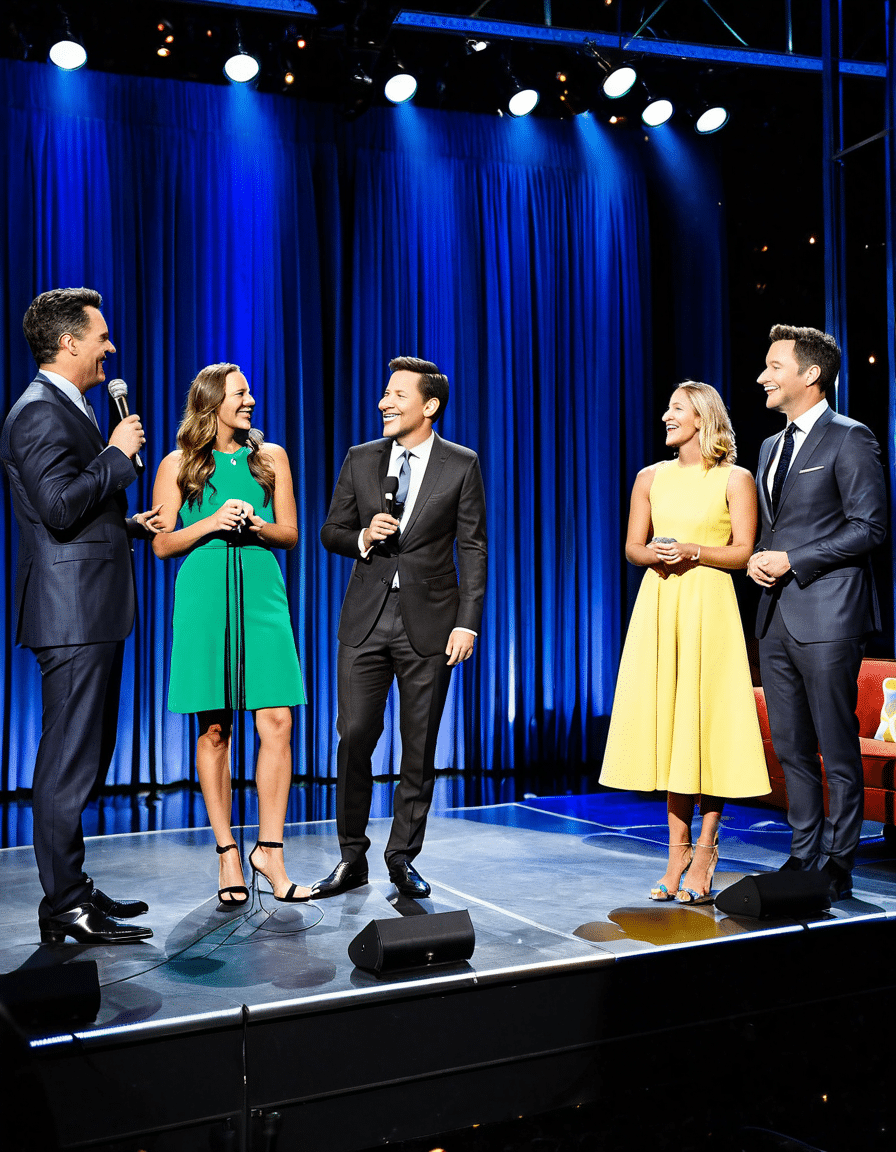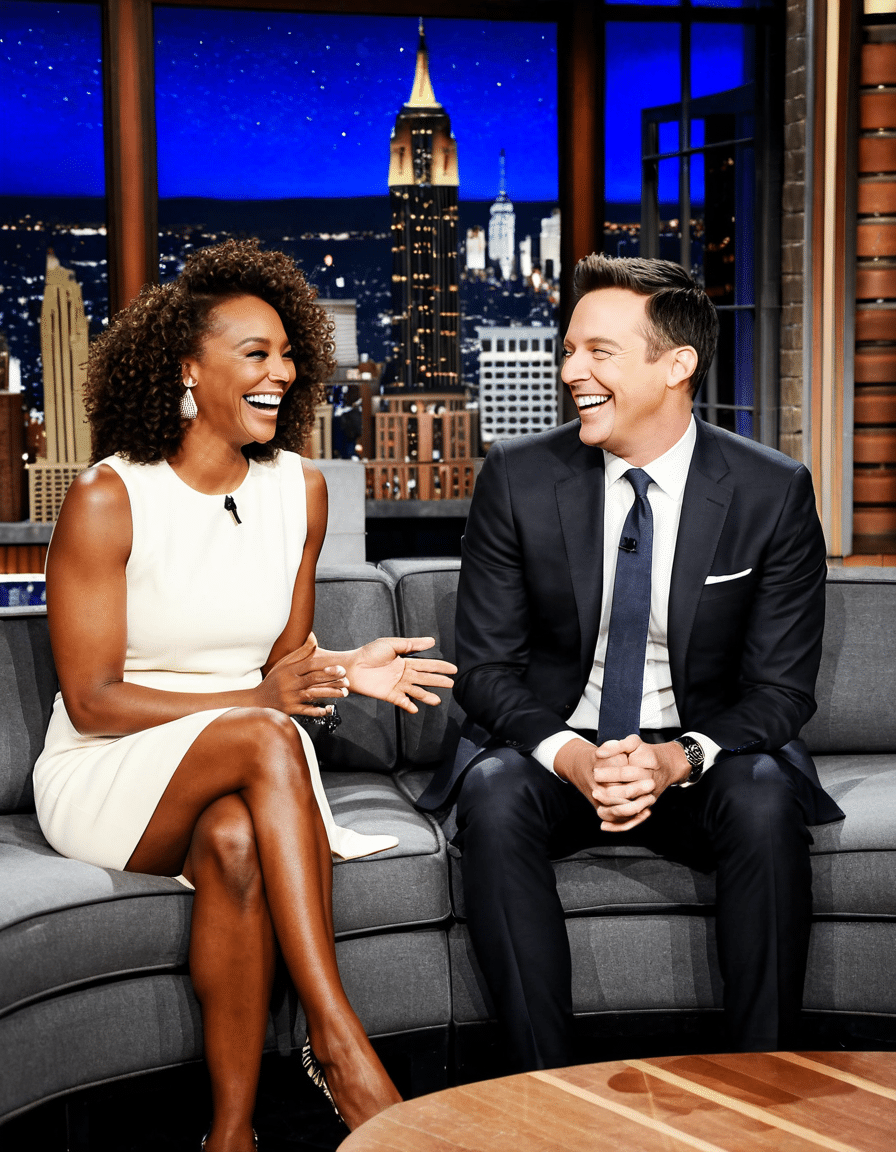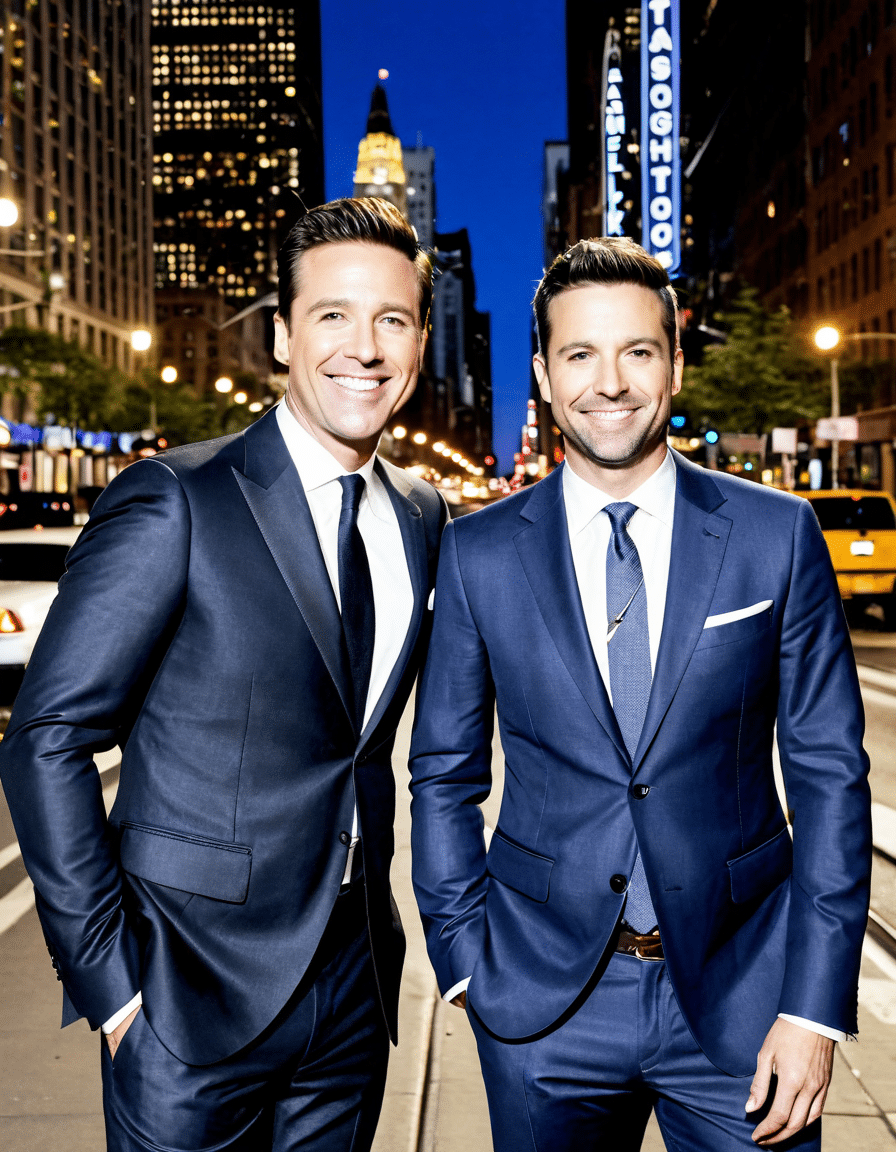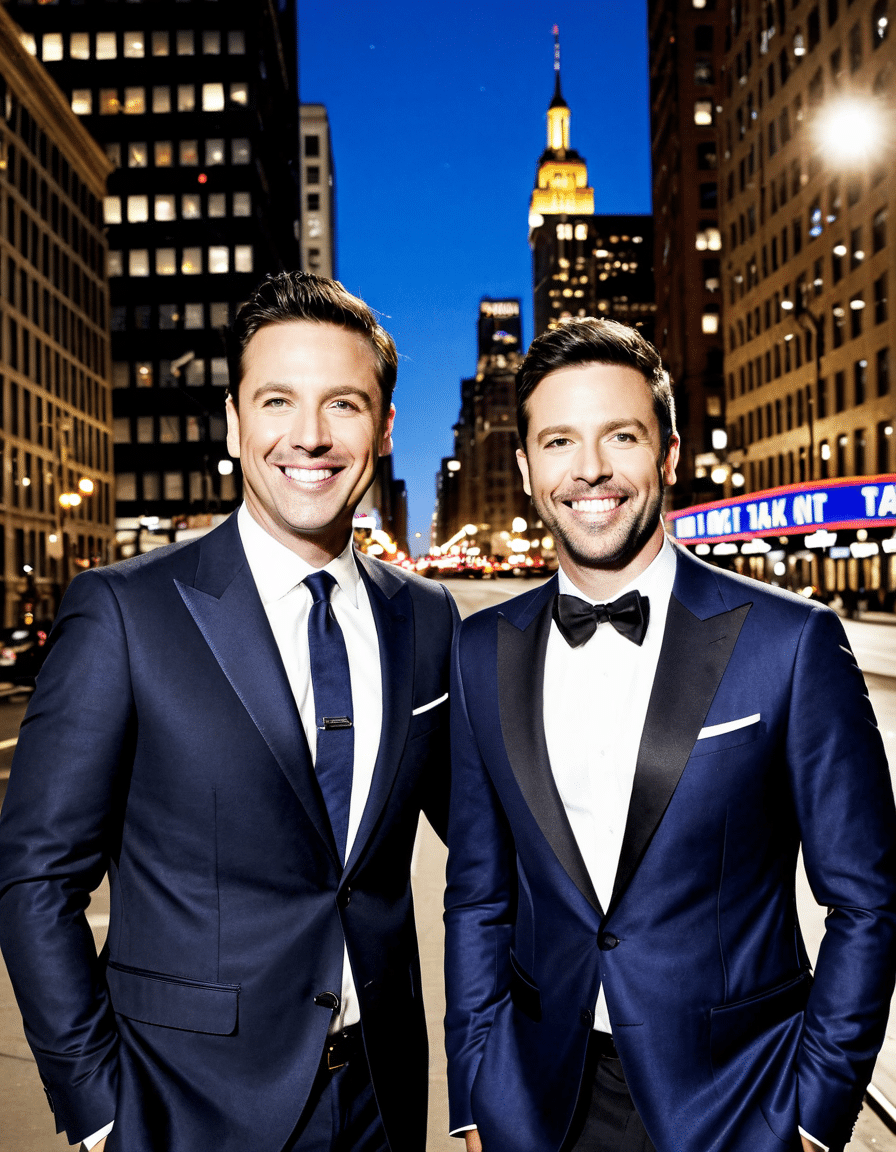
Late Night Talk Show Hosts Who Redefined Comedy Today
Late night talk shows have been a cornerstone of American entertainment for decades, delivering laughs, insights, and sometimes hard-hitting commentary. The genre has transformed significantly, especially in recent years, with modern-day late night talk show hosts reshaping comedy as we know it. They’ve not just pushed the limits of humor, but they’ve also built platforms that engage audiences in meaningful conversations about societal issues. Let’s dive into five influential late night talk show hosts who have changed the comedic landscape and how we connect with humor today.

1. John Oliver: The Satirist Extraordinaire
John Oliver, the sharp-minded force behind HBO’s Last Week Tonight, has shaken up political satire in a way few could have imagined. With a mix of deep dives into pressing topics like the north korean spy satellite and biting humor, Oliver’s approach resonates with viewers from all walks of life. His segments aren’t just funny—they’re educational. He’s known for wrapping up his comedic takes with powerful calls to action, urging viewers to engage meaningfully with issues that matter.
Beyond the facts and figures, Oliver employs multimedia storytelling. He often punctuates segments with clever graphics and video clips that highlight absurdities, making complex topics like climate change digestible. By fusing information with entertainment, he’s set a new benchmark for late night talk show hosts, demanding that comedy doesn’t just amuse but also inspires.
His influence extends beyond comedy into social movements. For instance, segments addressing corporate greed or healthcare inadequacies have gone viral, illuminating issues that often get overshadowed. Oliver’s fresh take on comedy encourages audiences to laugh while also challenging them to consider their roles in a larger narrative.

2. Stephen Colbert: The Master of Transition
In the landscape of late night TV, Stephen Colbert stands out with The Late Show with Stephen Colbert. What makes Colbert a game-changer is his mastery at navigating the ever-shifting political tides with humor and seriousness. Since his transition from The Colbert Report, he’s embraced a format that’s less about punchlines and more about insightful commentary.
Colbert’s signature style includes incisive interviews that tackle everything from public policy to celebrity culture, often revealing the absurdities in them. His poignant blend of humor and serious topics has beckoned a diverse audience, allowing for much-needed discussions in a politically charged atmosphere. Through the years, he’s created a safe space for exploring uncomfortable truths—because who wouldn’t rather discuss tough topics over a laugh?
With an ever-changing political landscape, Colbert has evolved his content to ensure its relevance, making political discourse entertaining. He reminds us that laughter can act as a bridge, connecting folks from contrasting sides of the aisle. By illustrating that comedy can help process serious matters, he’s become an essential voice in modern late night television.
3. Trevor Noah: The Global Perspective
Trevor Noah, the host of The Daily Show, offers a refreshing global view to late night comedy. Drawing from his South African heritage, Noah seamlessly combines his unique experiences with commentary on red state news and broader issues affecting the world. This multicultural perspective enriches the discussions in a way that speaks directly to an increasingly global audience.
Noah isn’t afraid to address tough subjects like race relations and international tensions, all delivered with his signature humor. He invites dialogue on these contentious issues, making them approachable while still shedding light on their gravity. Whether it’s examining systemic inequalities or poking fun at political gaffes, he shows how laughter can pave the way for deeper understanding.
Moreover, Noah’s international background fosters conversations about diversity and inclusion, inviting varied perspectives into the comedic narrative. This approach resonates with individuals who appreciate a more varied discourse, making his show an important cultural touchpoint. By promoting discussions on these topics, Trevor Noah helps shape a modern comedy landscape that’s thoughtful and representative.
4. Seth Meyers: The King of Clarity
On Late Night with Seth Meyers, clarity is king. Meyers has become known for his “A Closer Look” segments, where he artfully breaks down current events with a balance of humor and straightforwardness. Unlike many late night talk show hosts, he doesn’t shy away from complicated issues—he embraces them with open arms, making politics accessible to his audience.
What sets Meyers apart is his ability to relate personal anecdotes to broader themes, creating connections that feel genuine. This establishes a more human angle to the news, allowing viewers to engage more significantly with the material. His comedic storytelling fosters a trust that encourages audiences to think critically while enjoying the show.
Meyers also challenges the notion that late night comedy needs to be strictly funny. Instead, he advocates for thoughtful comedy that reflects the confusion often present in today’s news cycle. By finding clarity amidst chaos, he engages viewers who appreciate a mix of entertainment and insight, ultimately redefining what late night talk shows can be.
5. Jimmy Kimmel: Blurring the Lines of Reality
Jimmy Kimmel, through Jimmy Kimmel Live!, weaves an intricate tapestry of comedy, politics, and social commentary. His unique approach often features stunts and challenges that engage guests, viewers, and even everyday folks. Whether it’s poking fun at politicians or creating viral buzz through social media, Kimmel has redefined what it means to be a late night talk show host.
Kimmel’s use of technology sets him apart in the late night talk show landscape. He’s leveraged social media to expand his reach, transforming traditional segments into interactive experiences. For instance, his viral takedown of major events offers a blend of laughter and critique, challenging norms while keeping audiences captivated.
Moreover, Kimmel’s willingness to get creative with celebrity involvement enriches his show’s content. His approach encourages fellow late night hosts to take more risks, resulting in a broader scope of comedic expression. By blurring the lines between reality and entertainment, Kimmel represents a shift not only in late night comedy but also in how we consume media in today’s digital age.
Embracing the Future of Comedy
The transformation of late night talk shows embodies a more profound evolution in society’s interactive landscape with comedy. As viewers demand authenticity and relevance, hosts like John Oliver, Stephen Colbert, Trevor Noah, Seth Meyers, and Jimmy Kimmel adapt accordingly. Their blend of humor and insight entertains while addressing pressing issues that impact people daily.
Looking ahead, the impact of these late night talk show hosts remains significant as they reimagine our relationship with comedy. They show us how laughter can prompt conversations that spur change, urging new hosts to innovate in their own right. The success of these visionaries proves that late night comedy transcends mere entertainment—it serves as a powerful platform for cultivating critical dialogues and fostering societal progress.
In conclusion, the journey of these late night talk show hosts emphasizes that comedy isn’t just about making people laugh. It’s about breaking down barriers, engaging audiences, and instilling a sense of community through shared experiences and insights. The next wave of late night hosts will undoubtedly face the challenge of balancing this art, and how they navigate this task could redefine comedy in years to come.
Late Night Talk Show Hosts Who Redefined Comedy Today
Breaking the Mold
Late night talk show hosts have historically been the torchbearers for comedic innovation, pushing boundaries in ways that engage and entertain audiences across generations. A fascinating tidbit is that some studies suggest late-night comedians can significantly influence public opinion; a recent survey indicates that viewers often see these hosts as more relatable than traditional news anchors. This unique blend of humor with news has contributed to their popularity but also to their responsibility in shaping cultural narratives. Just look at how hosts like Adam Mcarthur have turned ordinary segments into must-watch events, showcasing their ability to really resonate with audiences.
Special Guests, Special Moments
Guest appearances are a staple of late-night, but they can sometimes lead to unexpected outcomes. For instance, did you know that when stars like the cast of Santana stepped onto the stage, social media buzz instantly skyrocketed? Another fun fact: late-night shows often feature surprise segments that highlight local talent or new projects, similar to how the hilarious Nuns skit brought a refreshing twist to religious humor. These moments showcase the amusing unpredictability that viewers love, proving that late night talk shows are platforms where creativity knows no bounds.
Innovation Beyond Monologue
Late-night comedy isn’t just about the monologue; it’s about how hosts engage their audience. Some are renowned for community-driven projects, much like how Rennovations took the stage to address societal issues head-on. Not to mention, many late night shows have also evolved beyond traditional formats, with segments like Turn Washington ‘s Spies embracing history in hilarious, engaging ways. This innovative approach encourages hosts to draw on history or pop culture in a manner that prompts laughter, while also adding an educational twist, keeping viewers entertained and informed!
Late night talk show hosts continue to redefine comedy by blending humor with relevance, surprising segments, and cultural commentary. With the evolving landscape of entertainment, they aren’t just making us laugh—they’re shaping the conversations that matter, one punchline at a time!










